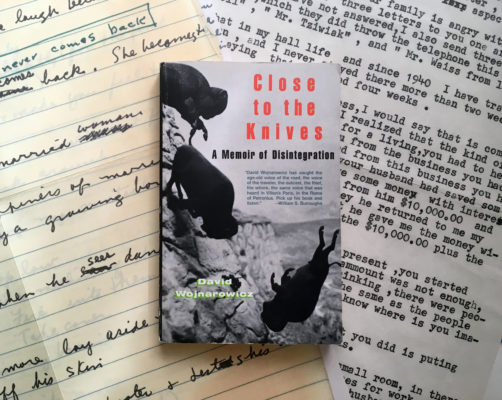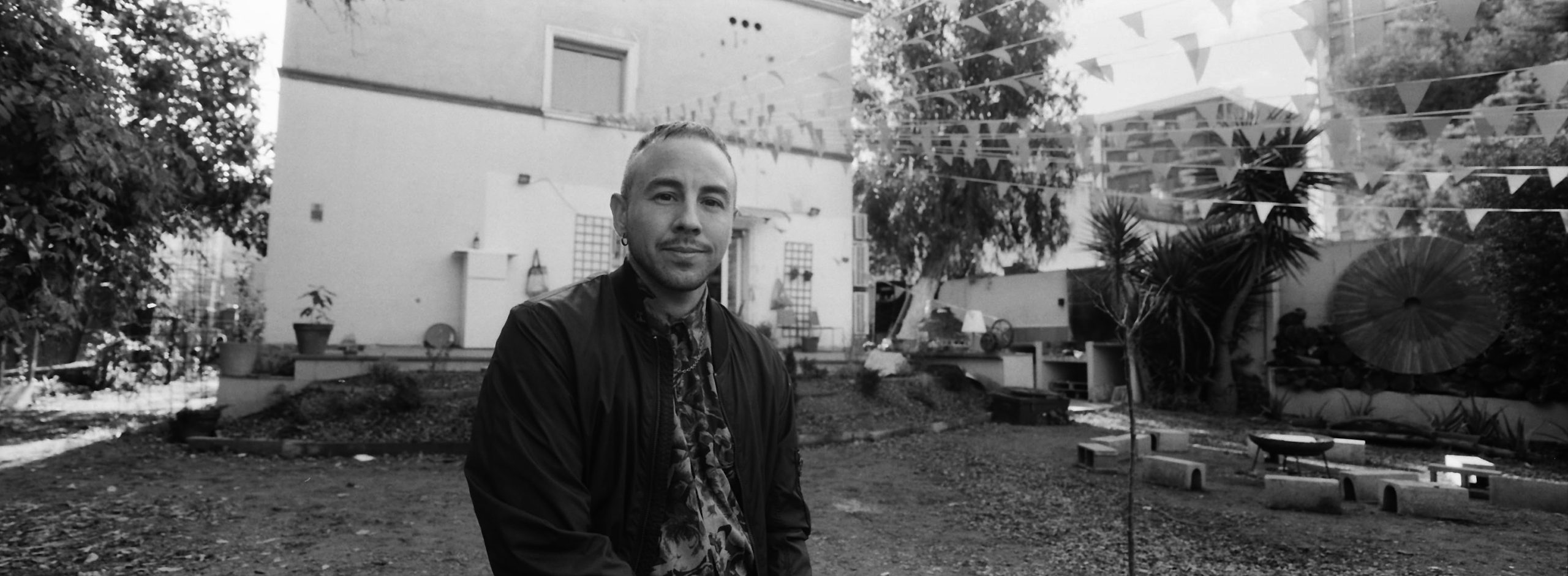Search
To search for an exact match, type the word or phrase you want in quotation marks.
A*DESK has been offering since 2002 contents about criticism and contemporary art. A*DESK has become consolidated thanks to all those who have believed in the project, all those who have followed us, debating, participating and collaborating. Many people have collaborated with A*DESK, and continue to do so. Their efforts, knowledge and belief in the project are what make it grow internationally. At A*DESK we have also generated work for over one hundred professionals in culture, from small collaborations with reviews and classes, to more prolonged and intense collaborations.
At A*DESK we believe in the need for free and universal access to culture and knowledge. We want to carry on being independent, remaining open to more ideas and opinions. If you believe in A*DESK, we need your backing to be able to continue. You can now participate in the project by supporting it. You can choose how much you want to contribute to the project.
You can decide how much you want to bring to the project.

This text is a series of notes and extracts that move between the fields of ART and PSYCHOLOGY and that encompass the work of two artists that I admire and respect. In a fleeting and experimental way, I propose a series of associations under the premises of MOBILITY and TRAVEL that move from the physical and tangible to the emotional and imperceptible.
I have always been interested in artists who introduce first-person autobiographical accounts in their work, artists who do not separate their LIFE and WORK. In this textual collage, I try to get closer to the sensibility of the work of DAVID WOJNAROWICZ (1954, New Jersey – 1992, New York) and IDA APPLEBROOG (1929, New York), using their narratives to visit the marginal spaces where their work coexists.
“I’m in a car traveling the folds of the southwest region of the country and the road is steadying out and becoming flat and giving off an energy like a vortex leading into the horizon line. I’m getting closer to the coast and realize how much I hate arriving at a destination. Transition is always a relief. Destination means death to me. If I could figure out a way to remain forever in transition, in the disconnected and unfamiliar, I could remain in a state of perpetual freedom.” D.W
In his wonderful book Close to the Knives: A Memoir of Disintegration, David Wojnarowicz documents, through a collection of viscerally honest, beautiful and incisive essays, his involvement and political activism in the painful AIDS crisis. At times, his voice is amplified by a lack of periods and commas, almost taking your breath away as you read it. His body is a vehicle in constant motion “cruising the streets” of New York, where the ASPHALT transforms into FLUIDS and where DESIRE coexists in a strange void alongside LOVE.
“There were times in my teens when I was living on the streets and selling my body to anyone interested. I hung around a neighborhood that was so crowded with homeless people that I can’t even remember what the architecture of the blocks looked like. Whereas I could at least spread my legs and gain a roof over my head, all those people down in those streets had reached the point where the commodity of their bodies and souls meant nothing more to anyone but themselves. I remember times getting picked up by some gentle and repressed fag living in a high-rise apartment filled with priceless north american indian artifacts and twentieth-century art who was paying me ten bucks to suck on my dick.” D.W
David Wojnarowicz grew up in the New Jersey SUBURBS with an alcoholic and abusive father. His work is honest and raw, extensive and multiform, going from writing to performance, from painting to video, and photography to activism. In one of his works we see a photograph of DAVID as a smiling boy with a plaid shirt and suspenders, two columns of text cover the image giving it VOICE.
“One day this kid will get larger. One day this kid will come to know something that causes a sensation equivalent to the separation of the earth from its axis. One day this kid will reach a point where he senses a division that isn’t mathematical. One day this kid will feel something stir in his heart and throat and mouth. One day this kid will find something in his mind and body and soul that makes him hungry. (…) Or one day this kid will talk.” D.W
#EMOTION: The root of the word EMOTION is to MOVE, coming from the middle French word émotion, which means “(social) movement, agitation, commotion.” The term emotion was introduced into academic discourse to assign “passions, feelings, and affections” and was coined in the early 19th century by Thomas Brown. According to this definition, no one had emotions before 1830 but, rather, felt other things, such as “passions,” “accidents of the soul” or “moral feelings.”
I remember the day when walking through dOCUMENTA (13) in Kassel in 2012, I came across the wonderful and generous work of Ida Applebroog. A large room was filled with offset-printed reproductions of handwritten or typewritten notes, letters, illustrations of her own vagina, or paintings, stacked in piles or hung on the walls. The bodies of the visitors circulated inside the work, zigzagging between boxes overflowing with papers that would empty out over the course of the exhibition. Visitors could take the copies that they wanted of her PRIVACY REPRODUCED AS A SERIES and shared COLLECTIVELY. Her writing is at times incomprehensible, at other times funny, grotesque or even incendiary. Ideas are written in old diaries or notebooks, and the INK often passes from one side to the other, overlapping content and reflections.
I am human, you pig
I’m a female anarchist
I’ll burn down their supermarkets
I’ll ban all their churchesI’m polymorphous perverse
Come off it
You’re too old
In one of the artworks, the artist appropriates and reproduces a letter dating back to 1600 written by Virginia Galilei, known as Sister María Celeste, to her father, who was accused of heresy and sentenced to house arrest for life by the Inquisition. Through this letter, the artist connects her own biography with that of Galilei, whose strict paternity and religious convictions made her suffer in a highly repressive and disciplined environment throughout her whole life. One of the offset reproductions exhibited in doCUMENTA (13) shows notes from Applebroog’s DIARY in which she openly shares the sexual abuse she suffered by his own father. The most private FILE of Applebroog, an artist born in the Bronx, daughter of Orthodox Jewish parents who emigrated from Poland, became public after more than 30 or 40 years without being seen.
The abuse
Is in the disease
It’s just
That I have
Too much blood
#TRAUMA: From the ancient Greek τραῦμα, signifies a WOUND, composed with the stem of the verb τιτρώσκω (tritosko = I wound, I hurt), associated with the Indo-European root *terə– (to rub, to grind by turning), and the words tribulation, grind and wheat. Generally, a psychic or psychological trauma can be either an event that threatens the well-being or life of a person, or the consequence of that event in the apparatus, mental structure or emotional life of the person. Sometimes, if stimuli from the present are matched with memories of a traumatic experience from the past, the brain can react as if the experience from the past was occurring in the present. A kind of TEMPORARY JOURNEY without going anywhere.
I sublimate my problems into art
The problems disappear
My art remains
That is another problem
# DISSOCIATION: Dissociation is a complex mental capacity that we use in everyday life which involves detaching ourselves from the outside world and focusing on our inner world. Daydreaming and mental drift are forms of dissociation. While the physiology of the response to a stimulus optimizes such reactions as fight-or-flight, the physiology of dissociation helps to rest, regain strength, survive injuries and tolerate pain.
Once upon a time
I went to the zoo
and watched
one hundred
and thirty-two
tortoises
slowly fuck
in the sun
that day
“Trauma does not occur in a vacuum” and although sometimes it only affects one person, the effects should not be considered individual. The works that I present in this text, works that move me emotionally, embody a space of collective care and mobilization. Private stories become public, and the work speaks from silence and invisibility.
Bibliography
Wojnarowicz, David: “Close to the Knives: A Memoir of Disintegration,” Vintage Books, New York, 1991
Carr, Cynthia: “Fire in the Belly. The Life and Times Of David Wojnarowicz,” Bloomsbury, New York, 2012
Ed. Documenta and Museum Fredericianum: “Das Begleitbuch/The Guidebook – dOCUMENTA (13),” Hatje Cantz, Ostfildern, 2012
Goleman, Daniel: “Emotional Intelligence: Why It Can Matter More Than IQ,” Bantam Books, New York, 1995
Perry, Bruce/Winfrey, Oprah: “What Happened to You? Conversations on Trauma, Resilience, and Healing,” Flatiron Books, London, 2021

Pol Merchan works as an artist and programmer at the Xposed Queer Film Festival in Berlin. He has been awarded research grants from the Department of Culture of the Berlin Senate, the Kunstfonds Bonn Foundation and the QueerScope e.V. His work has been shown in artistic institutions and in numerous film festivals, including the Reina Sofía Museum, Barcelona Contemporary Culture Center, Azkuna Zentroa, Berlinische Galerie, La Panera Art Center, Anthology Film Archives in New York, Los Angeles Film Forum, Hot Docs Canadian International Documentary Festival, Internationale Kurzfilmtage Oberhausen and the Ann Arbor Film Festival.
"A desk is a dangerous place from which to watch the world" (John Le Carré)